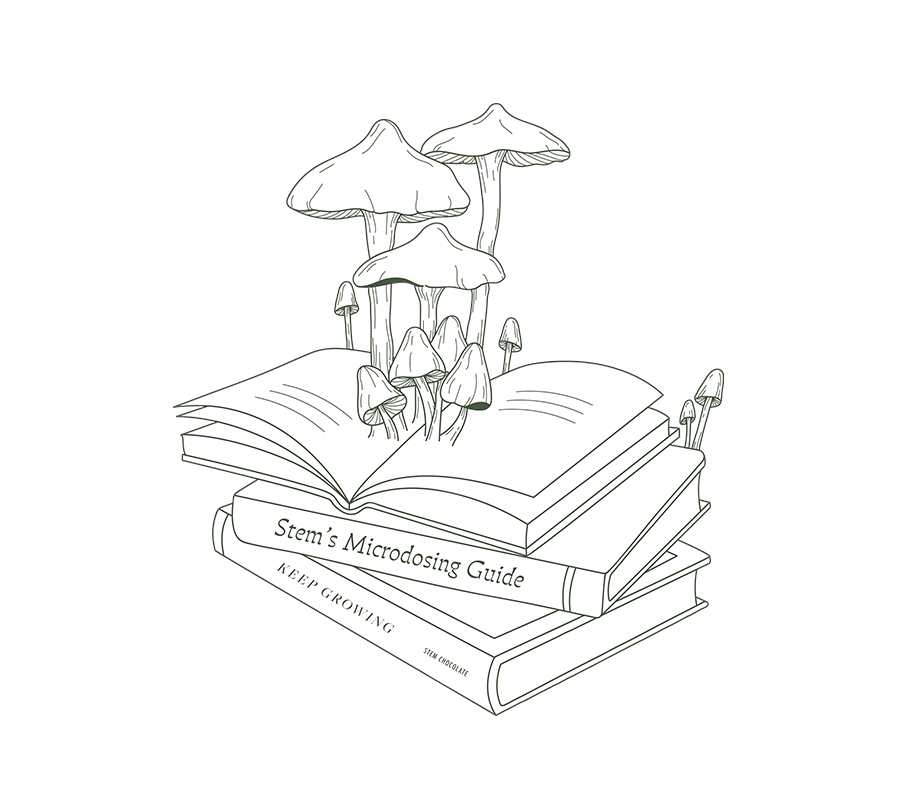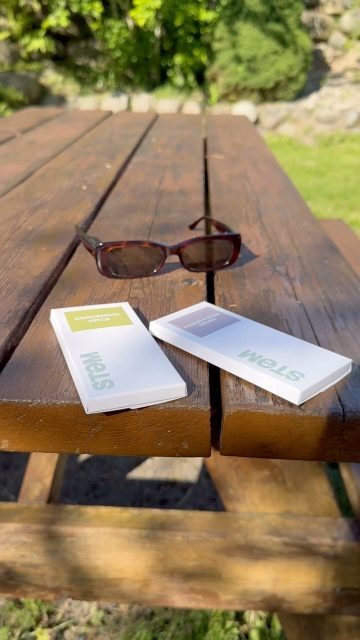From approving religious exemptions to budgeting for medical research, advocates are hopeful that Biden and a Democratic Congress could mean progress for psilocybin and other therapeutic psychedelics, including the development of psilocybin chocolates.
February 15th, 2021
Original RollingStone Post by Shelby Hartman & Madison Margolin
Psychedelic reform isn’t exactly President Joe Biden’s top priority. But as his administration and the new congress gets underway, advocates are hopeful that the next four years will continue to bring policy changes that chip away at the federal prohibition of psilocybin, MDMA, and other psychedelics.
For several years, psychedelics advocates have been focused on local initiatives. This past election, Oregon legalized psilocybin therapy and decriminalized all drugs, while Washington D.C. decriminalized all plant- and fungi-based psychedelics. Since then, California State Senator Scott Wiener has begun drafting a bill to decriminalize psychedelics on the state level, four Hawaii state senators introduced a psilocybin therapy bill, and Florida State Representative Michael Greico has been working on legislation to legalize psilocybin therapy for people with a diagnosed mental health condition. Meanwhile, grassroots activists in dozens of cities and counties (including Chicago, Philadelphia, Berkeley, and Nashville) are seeking to decriminalize psychedelics either at the ballot box or through city council. These initiatives are mostly modeled after the Decriminalize Nature resolution, which decriminalized all natural psychedelics through city council in Oakland in June 2019.
We can look to the cannabis movement to map the trajectory of psychedelics, says Noah Potter, the author of the New Amsterdam Psychedelic Law blog and co-founder of the advocacy organization New Yorkers for Mental Health Alternatives: “You saw a wave of state level legislative changes and decriminalization in the 70s and early 80s, and then California voters passed Prop 215 and it went from there,” he says. “The psychedelic activists are following the same model. Why are you going to bang your head against the wall federally when you can start by dealing with your own local government?”
That said, psychedelic insiders are optimistic that alongside local reform there will be federal movement towards ending prohibition, too. Potter says one thing he could see being done immediately by the new attorney general — which is likely to be Merrick Garland — would be something akin to the Cole Memo. Issued under the Obama Administration, and then rescinded by Attorney General Jeff Sessions following the election of President Trump, the memo directed state attorneys to not enforce federal cannabis prohibition in states where cannabis was legal in some form. Potter says now that Oregon has become the first state to legalize — not just decriminalize — medical psilocybin, he could see Biden’s attorney general doing something similar for psilocybin.
Potter also makes the case that, now that a state is claiming that psilocybin has medical use, the DEA is obligated to schedule hearings to reconsider whether it should be on the Controlled Substances Act. Granted, he says, the DEA also should have held hearings when the first state claimed cannabis had medical use — they never did. But, he says, if a member of the public petitioned the DEA to hold hearings based on Oregon’s new law, they might be forced to. Biden could also just direct the DEA to hold these hearings, although that doesn’t seem likely.
“By virtue of the DEA’s interpretation of the [Controlled Substances Act], once a state finds there’s a medical use for a Schedule I substance, they have to hold a hearing before an administrative law judge and hear witnesses and review evidence,” says Potter. “As soon as a state found there was a medical use for cannabis, the DEA was obligated to hold an evidentiary hearing. I would make the same argument with psychedelics now that Oregon has legalized psilocybin therapy.”
The question for many activists now is really: Will the Biden Administration interfere with state, city, and county-level psychedelic reform? Kevin Matthews, founder of SPORE, the Society for Psychedelic Outreach, Reform, and Education, doesn’t think so. Since Denver became the first jurisdiction to decriminalize a psychedelic at the ballot box in 2019, the DEA has stayed out of the county, except for when they arrested one magic mushroom dealer who activists believe was just being reckless by publicizing his grow. The DEA has more important things to address than safe psychedelic use, says Matthews, such as the opioid crisis.
Melissa Lavasani, who proposed Initiative 81, which decriminalized all natural psychedelics in Washington, D.C., agrees. “I don’t think the feds are going to get in the way of cities and states decriminalizing,” she says. “They’re going to want to see what happens in Oregon. They’re going to let the states do their thing and see how everything pans out.” Lavasani, who lives in D.C. and worked for the District of Columbia as a senior budget analyst and budget officer for nearly a decade, says she’s been connecting with congressmen on both sides of the aisle to gauge their interest in psychedelic reform since first drafting Initiative 81. At this point, she’s spoken to about 10 congressmen in total about what they accomplished in D.C., and they’ve all responded with openness and curiosity.
However, Lavasani says it’s important to remember that the cannabis industry still doesn’t even have legitimate banking opportunities, so she thinks federal psychedelic reform will be “a very long game.” She recently founded the Plant Medicine Coalition, a women-led nonprofit, with the intention of increasing access to psychedelic medicine through local and national advocacy. One of their primary goals is to get the federal government to allocate $100 million to psychedelic research. They’re first going to see if there’s a possibility Biden will put it into his budget, although they think that’s unlikely. If that doesn’t work, they’ll start aggressively speaking to congressmen about passing a bill with the funding.
“We think that once there is a body of data that is sponsored by the federal government that proves without a shadow of a doubt that there is a therapeutic application, that these are real medicines, that’s when things are really going to change in congress,” Lavasani says.
There’s hopes of many other changes, too, in the next four years. President Biden sponsored the Reducing Americans’ Vulnerability to Ecstasy Act, or RAVE Act, in 2003. That law made it a liability for venues to offer harm reduction services, like onsite drug testing, which drug policy activists widely agree has only made festivals, clubs, and other environments where people use drugs more dangerous. Harm reduction activists hope that Biden may support renewed efforts to revise the law.
There’s also been a wave of ayahuasca churches in recent years applying to the DEA for permission to use ayahuasca religiously. Natalie Ginsberg, Director of Policy & Advocacy at MAPS, says she’s “eager” to see an amendment to the Religious Freedom Restoration Act, which considers how spirituality and religion play a role in psychedelics use and traditional practice, while making sure peyote is protected. Something like this, Lavasani says, could be attached to the bill approving the $100 million allocated for federal psychedelics research.
Ginsberg says, generally speaking, she also has high hopes for the Biden administration, especially because he ran on a platform of criminal justice reform and has already ended Justice Department contracts with privately-owned prisons. She says the vision, ultimately, is really to end the war on drugs altogether.
“[It’s not] unreasonable to hold as a goal that we’re moving towards, especially because so many states are starting to revisit their approach to drug criminalization,” she adds.
It’s impossible to put a timeline on all these efforts, but the movement certainly isn’t slowing down. And it’s important to remember, too, says Lavasani, Potter, Matthews, and others, that when the pandemic ends, we’ll be left with its psychological aftermath. This, they hope, will make therapeutic access to psychedelics feel more prescient for legislators everywhere.
“My hope with the Biden administration and other lawmakers is that they’re going to be receptive to having a conversation about psilocybin and other psychedelics,” says Matthews. “We’re facing a global mental health and addiction crisis, and that’s only been accentuated by COVID-19 with the lockdowns and business closures and further isolation. We need radical, safe effective solutions to address this emergency before it gets any worse.”














